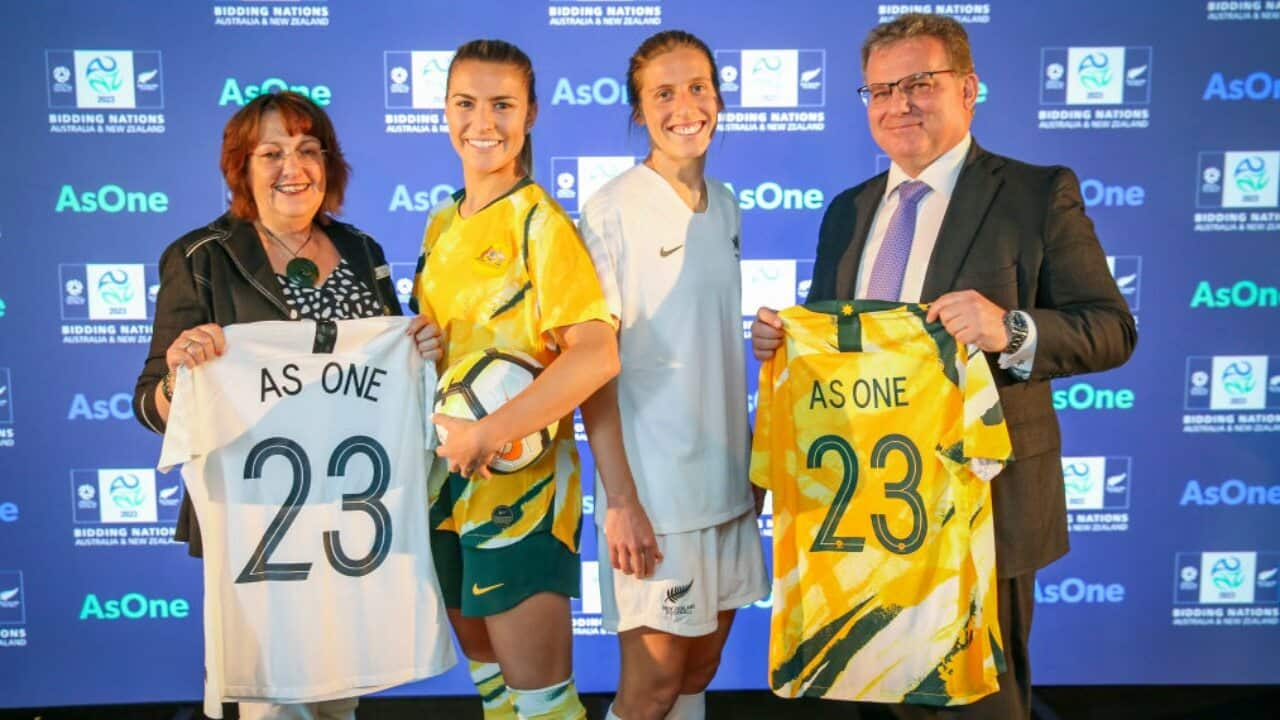It is a little ironic that, to do so, Australia has enlisted the help of its former football stomping ground and joined forces with New Zealand.
While there was a lot of interest around the world, only four bids were submitted to FIFA by Friday’s deadline: Brazil, Colombia, Japan, as well as Australia and New Zealand.
To get the nod from the 37 members of the FIFA Council next May, Australia and New Zealand are first going to have to get past Japan.
The decision in Sydney to join forces with Wellington is a gamble but an understandable one. There is good, bad and uncertain news when it comes to 2023 hopes down under.
The Good
Oceania’s help: Partnering with Oceania will (you would hope!) guarantee the support of the three FIFA Council members from that confederation. It’s a small base but it is a base that Australia, which has no representation, would not have by itself and it is something to work with. New Zealand on its own is highly unlikely to get such a big tournament by itself and having Australia on board makes it easier for FIFA to finally give Oceania a major event.
The infrastructure: Australia, past host of Olympics and the Asian Cup, has what it takes to host the Women’s World Cup on its own. Adding New Zealand just makes it easier. This is something - as well as the climate - that FIFA does not have to worry about .
The Timing: Japan co-hosted the 2002 World Cup the 2019 Rugby World Cup and has the Olympics coming up. This may not bother FIFA officials but Australia and New Zealand have never come close to the World Cup. It could be argued that this is the turn of these countries. If not now, then when?
The Bad
Asia: Australia’s decision to join forces with New Zealand may make sense but it means that Japan can present itself as the sole Asian bid, especially now Korea is out of the picture. The AFC has often voted as a bloc in the past - a secret ballot helps this time around - but it is going to be very difficult for Australia to gain support from its own confederation.
Joint bid: After the 2002 World Cup held in South Korea and Japan, FIFA frowned upon more than one country hosting as it made everything too much hard work. The expansion of the men’s World Cup to 48 teams from 2026 means that there is an acceptance that multiple countries will often be needed. Yet a World Cup that takes place in two confederations is a new idea and it remains to be seen how this is received.
Japan: The Land of the Rising Sun may have had its fair share of sporting tournaments of late but nobody would argue that Japan does not do a great job. Rugby federation and fans from around the world fell in love and there were record television audiences. The country has the infrastructure, the know-how and the passion to be a fantastic host of the 2023 Women’s World Cup.
Australia is going to have to produce one of its best ever performances to see off the challenge of Japan.
The Uncertain
No South Korea: On the face of it, it can only be good that a competitor has withdrawn. And Korea could have been a threat.
FIFA actually asked Seoul in March if it would bid to host along with North Korea. The idea of a joint bid and a joint tournament between two countries that are still technically at war appealed huge to the world governing body.
FIFA love talk of legacy - even if the reality often does not match up - and there could be none greater than helping to bring two enemies together.
Yet South Korea decided not to bid. The official reason given was that FIFA requirements would clash with Korean law but there was an acceptance in Seoul, with relations on the peninsula even frostier than usual, that there was no point in even starting.
October’s 2022 World Cup qualifier in Pyongyang between the two with no fans, no broadcast and no communication at all simply confirmed it.
The field from this part of the world is now much clearer especially as Korea is a country that plays the FIFA game very well.
But this may help Japan more than Australia and Japan FA officials are delighted. There is no love lost between these two East Asian rivals and they could have been so focused on becoming Asia’s top bid and fighting each other that Australia and New Zealand could have slipped in and taken advantage.
We will never know now but other questions will be answered in the months to come.










